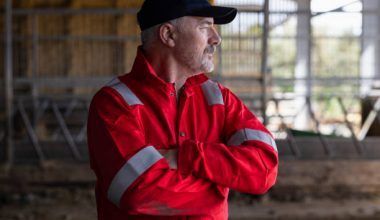Imagine a classroom that transcends the boundaries of traditional education, where students can explore the mysteries of the universe, interact with astronauts in space, and gain unparalleled insights into cutting-edge scientific research.
Welcome to the ISS in School program, where learning takes on a new dimension in 2023! The ISS, or International Space Station, isn’t just a marvel of human ingenuity and technological prowess; it’s also a living laboratory that offers a unique and immersive educational experience for students worldwide.
In this piece, we will delve into the captivating world of ISS in School and how it empowers students to unlock their full potential and ignites their passion for STEM courses.
Table of contents
What is the ISS in School program?
The ISS in School program is a revolutionary educational initiative that brings the wonders of space exploration directly into the hands of students. But what exactly is the ISS in School program, and how does it empower students in 2023?
At its core, the ISS in School program is an immersive educational experience around the International Space Station (ISS), a state-of-the-art orbiting laboratory home to cutting-edge research and innovation. Through this program, students have the extraordinary opportunity to engage with real-world scientific endeavours aboard the ISS. And participate in interactive educational activities that spark curiosity, ignite passion, and foster critical thinking skills.
The ISS in School program offers a rich and diverse array of educational activities that cater to students of all ages and interests. From conducting microgravity experiments, engaging in virtual chats with astronauts in space, and analyzing data from actual space missions, students are exposed to a world of endless possibilities.
They can delve into various STEM (science, technology, engineering, and mathematics) subjects, including physics, biology, chemistry, astronomy, and more, as they explore the fascinating world of space science.
Also read: How Do I Become a Quantum Physicist in 2023? Step By Step Guide
How does the ISS in School program help students in 2023?
The ISS in School program is not just your average classroom experience – it’s an educational journey that propels students into the future with boundless opportunities! Below are some critical ways the ISS helps students.
The immersive and hands-on learning approach
One of the key ways the ISS in School program benefits students in 2023 is through its immersive and hands-on learning approach. Students have the unique opportunity to engage with real-world scientific experiments on the International Space Station (ISS), unlocking possibilities.
Students participate actively in the scientific process, from designing their experiments to analyzing data from actual space missions. This experiential learning approach fosters creativity, critical thinking, and problem-solving skills, giving students the tools to excel in an ever-evolving world.
STEM Growth
Furthermore, the ISS in School program nurtures students’ passion for science, technology, engineering, and mathematics (STEM). By connecting the classroom with cutting-edge research and innovation on the ISS, students explore the wonders of space science and develop a love for STEM subjects.
This program ignites curiosity, sparks inquiry, and motivates students to pursue careers in STEM fields, which are in high demand.
Global Connections and Collaboration
The ISS in School program promotes global connections and fosters collaboration among students from different schools, countries, and cultures. Students develop cross-cultural understanding, teamwork skills, and a global perspective through virtual chats with astronauts in space, collaborative projects, and shared learning experiences.
These connections enhance their learning experience and prepare them to thrive in a globally interconnected world where collaboration and diversity are highly valued.
21st-century skills
The ISS in School program also equips students with 21st-century skills essential for success in the modern workforce. In 2023 and beyond, the job market will continue to evolve rapidly, with increasing emphasis on critical thinking, problem-solving, adaptability, and technology literacy.
The ISS in School program allows students to develop these skills through hands-on learning, real-world applications, and interdisciplinary approaches. This prepares them to be well-equipped for the challenges and opportunities of the future, positioning them for success in their academic and professional endeavours.
Resources
Furthermore, the ISS in School program offers many resources for teachers and students, including lesson plans, interactive simulations, multimedia materials, and expert guidance. These resources support teachers in integrating space science into their curricula and help students deepen their understanding of complex concepts.
The program also promotes teacher professional development, providing educators with the tools and knowledge to inspire and engage students in meaningful learning experiences.
Also read: 10 Best Universities for Biomedical Sciences in the UK | 2023
How can students participate in the ISS in School program?
Participating in the ISS in School program is an exciting opportunity for students to be part of cutting-edge space science research and exploration. Here’s how students can get involved:
#1. Join a participating school
The ISS in School program is offered through participating schools partnered with space agencies, educational organizations, or private companies. Students can check with their school to see if they are part of the program or express their interest to school administrators or teachers.
#2. Engage in classroom activities
Teachers can integrate ISS in School program activities into their curriculum, bringing the wonders of space science to the classroom. Students can participate in hands-on experiments, simulations, and collaborative projects that align with their grade level and curriculum standards. These activities can be both fun and educational, sparking students’ curiosity and creativity.
#3. Design and propose experiments
One of the most exciting aspects of the ISS in School program is the opportunity for students to design and propose their experiments to be conducted on the International Space Station. Students can brainstorm ideas, conduct research, and work with their peers to develop experiment proposals that address real-world scientific questions or problems related to space science.
This hands-on experience allows students to apply their critical thinking, research, and problem-solving skills in a real-world context.
#4. Collaborate with international partners
The ISS in School program often involves collaboration with other schools, space agencies, or educational organizations worldwide. Students can connect with peers from different countries, cultures, and backgrounds and work together on shared projects or exchange ideas and perspectives.
This gives students unique opportunities to develop cross-cultural understanding, communication skills, and global citizenship.
#5. Learn from experts
The ISS in School program often involves interactions with astronauts, scientists, and experts in space science. Students can learn from their experiences, insights, and expertise through virtual chats, webinars, or guest lectures.
These interactions can inspire students, broaden their horizons, and expose them to real-world applications of space science.
Students can showcase their achievements and share their work with the broader community through presentations, exhibitions, or competitions. This allows them to celebrate their accomplishments, build confidence, and inspire others. It’s an opportunity for students to be proud of their contributions to space science research and exploration.
Also read: How do I Become a Medical Research Scientist in 2023? With no Experience)
How does the ISS in School program Prepare Students For The Future?
The ISS in School program is an exciting educational opportunity for students to learn about space science. It aligns with 21st-century learning skills, equipping students with the necessary knowledge and abilities to thrive in the future. Here’s how:
Critical thinking and problem-solving
The ISS in School program encourages students to think critically and solve complex problems related to space science. From designing experiments to analyzing data, students apply critical thinking skills to make informed decisions, troubleshoot issues, and arrive at evidence-based conclusions.
Collaboration and teamwork
The ISS in School program often involves collaborative projects that require students to work in teams. Through teamwork, students learn to communicate effectively, collaborate with diverse perspectives, and contribute their unique skills and knowledge towards a common goal. These experiences prepare students for the collaborative nature of work in the 21st century, where teamwork and collaboration are essential for success.
Creativity and innovation
The ISS in School program encourages students to think creatively and develop innovative solutions to space-related challenges. From designing experiments to building models or simulations, students are encouraged to think outside the box, generate new ideas, and find creative solutions.
These opportunities foster creativity and innovation, highly valued skills in the 21st century, where innovation drives technological advancements and societal progress.
Technological literacy
The ISS in School program incorporates technology, from data collection to data analysis, simulations, and virtual interactions with experts. Students gain hands-on experience with different technologies, including scientific tools, data analysis software, and virtual communication platforms. This enhances their technological literacy, a crucial skill in the 21st century, where technology is an integral part of our daily lives and professional careers.
Global awareness and cultural understanding
The ISS in School program often involves collaborations with students from different countries and cultural backgrounds. This exposure to diverse perspectives fosters global awareness and cultural understanding, helping students develop empathy, tolerance, and a global mindset.
In the increasingly interconnected world of the 21st century, these skills are crucial for effective communication, collaboration, and success in diverse settings.
Presentation and communication skills
The ISS in School program provides opportunities for students to present their work, ideas, and findings through presentations, exhibitions, and virtual interactions with experts. This helps students develop effective presentation and communication skills, including oral, written, and digital communication.
These skills are vital in the 21st century, where effective communication is essential for success in various professional and social contexts.
Read also: What Are Academic Skills in 2023? How to Select the best
Frequently Asked Questions
The ISS in School program aligns with 21st-century learning skills by fostering critical thinking, technological literacy, and communication skills.
The ISS in School program prepares students for the future by equipping them with the necessary mindset to thrive in the evolving and technology-driven world of the 21st century.
Schools or educational institutions can participate in the ISS in School program by partnering with organizations that offer ISS-related educational initiatives. This may involve registering for the program, accessing educational resources, or collaborating with other schools.
No, the ISS in School program is not limited to students interested in space science or STEM fields. While it offers unique opportunities for students interested in these areas, it also promotes interdisciplinary learning and can benefit students from various fields of study.
Students can showcase their work in the ISS in School program through presentations, exhibitions, virtual interactions, and other forms of communication.
Prior knowledge of space science or astronomy is unnecessary to participate in the ISS in School program. The program caters to students of different backgrounds and levels of expertise.
Conclusions
Through the ISS in School program, students can gain hands-on experience, expand their knowledge, and showcase their work, regardless of their background or prior knowledge of space science. So, if you’re a student looking to explore the wonders of space and enhance your educational journey, the ISS in School program is an exciting opportunity to consider. Get involved and be part of an inspiring educational adventure!
References
- nasa.gov – Overview of ISS Global Education
- stem.org.uk – International Space Station (ISS)
- wikipedia.org – International Space Station


